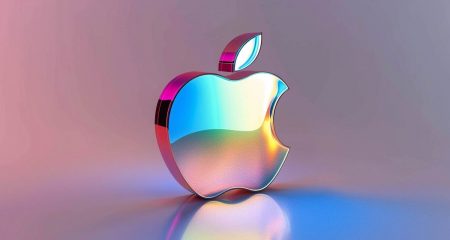
The iPhone 5 is a huge disappointment, without any of the delightful innovations that characterised the launches of its older siblings. The Phone 5 is a huge success, selling faster than any of the models that came before it. These are the messages competing for dominance in the tech and business press. But which is the true story?
The naysayers have a good point. A slightly larger screen, a faster processor, a better camera and long overdue fourth generation (4G) mobile connectivity — not exactly thrilling. Samsung, Apple’s sworn enemy, has had phones with all these features in the market for 18 months already. That’s like a decade in mobile phone terms.
And yet when Apple began taking pre-orders for the phone at midnight (Pacific Standard Time) on 24 September, all of the available devices were snapped up within one hour. If demand holds up it will be Apple’s fastest selling phone ever.
Michael Feroli, a market analyst at JPMorgan Chase, a large US bank, certainly believes it will. He predicts that the iPhone will — single handedly — add US$3,2bn to the US GDP and boost the economy’s (annualised) rate of growth by 0,33% in the fourth quarter of 2012. That’s the entire US economy buoyed up by the “disappointing” launch of a single mobile phone.
So why is a phone without any really sexy new features expected to sell so well? The answer is both very complex and very simple. The complex part is the motivations that drive people to choose one brand over another.
Hundreds of interrelated factors are at play. Peer pressure, familiarity, status, fashion, usability, flexibility, perception — all of these and hundreds more compete in an ever shifting psychological dance. Apple currently enjoys a stranglehold on this motivation for hundreds of millions of devoted fans. Their devotion runs so deep that critics sneer that Apple could sell “a turd wrapped in tin foil” if it only stamped its logo on the side.
The simpler answer is that the vast majority of people don’t actually care about features — they care about functions. Those sound like the same thing, but they are not. The most common lament of mere mortals given space-age technology? “I know I don’t use half the features. I really should try to learn more.” Most people don’t know (or care) what the hell 4G is — they just want to check their Facebook page or send a video message to their granddaughter. Apple has proven to be extremely good at delivering these kinds of functions in a beautiful and intuitive way.
Faith in an icon
Yet even The Economist has fallen into the trap, tut tutting that Apple had better watch out for the rise of fancier Android powered phones (including those made by Samsung). It quotes some startling statistics: “Android’s share of smartphone sales rose from 24% in 2010 to 66% in the first half of this year; Apple’s grew four percentage points, to 20%, over the same period.”
The first problem with this argument is that it ignores precedent. When the first iPhone launched in 2007 it was widely derided by the tech and business press. “It has no 3G for goodness sake! And who on earth is going to use a touchscreen phone? Everyone knows touchscreens are poison.” The same drama has played out each time Apple has launched a new version of the handset, and each time sales have exceeded all expectations.
The second problem is that, while Android’s growth sounds impressive, it has some serious caveats. There are literally hundreds of handset manufacturers using Android. Google’s plan was always to win market share by making its mobile software platform free and easily adaptable. That has worked brilliantly, but has also created an enormous amount of fragmentation.
There are now literally dozens of versions of Android floating around the market, many of them mutually incompatible with the newest applications and content. Compare this to Apple’s highly regulated ecosystem. More than 85% of its phones already use the second most recent version (5.1) of its iOS operating system. The uptake for the newly released iOS 6 is expected to follow suit.
This might sound like a purely technical debate, but it has real implications for users who suddenly discover that their new phone doesn’t work with their favourite app, and for independent developers who struggle to test and market their wares on an increasingly fragmented platform.
And while Apple may “only” have 20% of the market, it commands 75% of the profits. Yes, you read that right: three quarters of all profits for the entire mobile phone industry flow to Apple, a company that has only been in the game for just over six years. Samsung, which has been slogging away for decades, reaps less than 20%. No other player in the market can even scrape together 5%.
Does this mean Apple can rest on its laurels? Has it forever conquered the industry? Of course not. If it becomes bloated and complacent, as competitors like Nokia and BlackBerry’s parent company Research In Motion have done, it will fall. And given that over half of its revenues now depend on a single device, that fall would be hard.
Still, it’s a bit early to be sounding the warning bells. Yes, Android is a serious long-term threat to Apple’s dominance over the industry. And yes, the iPhone 5 is particularly bereft of shiny new features. But, until Apple’s fans begin to lose faith in their icon, they’re unlikely to be going in any direction but up. — (c) 2012 Mail & Guardian
- Alistair Fairweather is GM of digital operations at the Mail & Guardian
- Visit the Mail & Guardian Online, the smart news source




